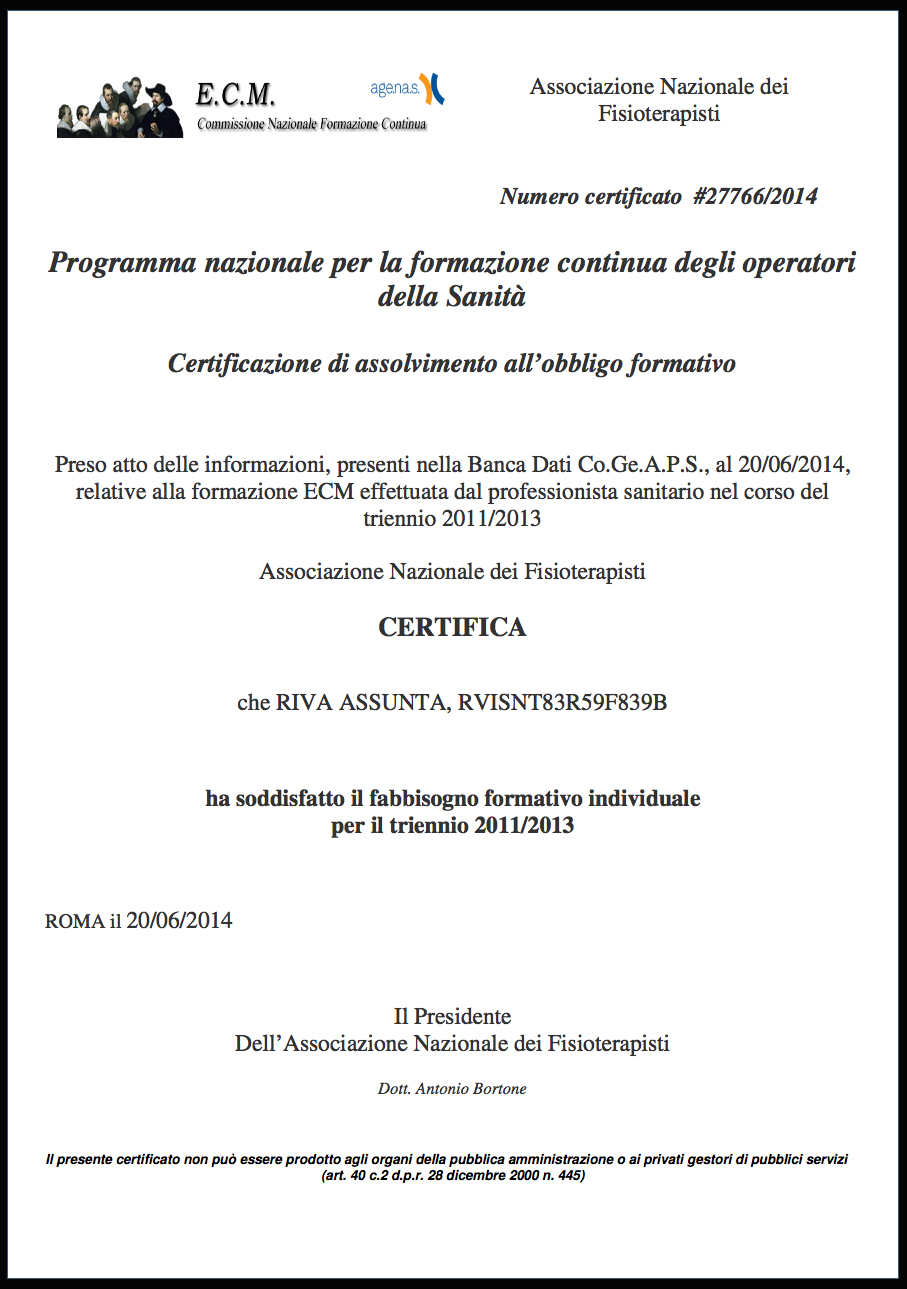CME – Continuing Medical Education
CME (CPD) is a process enabling health professionals to keep up-to-date in order to ensure patients’ needs are met, fulfil National Health Service requirements and maintain continuous professional development.
Continuous medical training includes acquiring the latest knowledge, skills and abilities needed to support professional development and practice.
Good medical practice requires health professionals to put new knowledge and competence to use by providing patients with high quality standards of care. This means practicing to appropriate up-to-date standards, with no conflict of interests, in order to maintain and improve professional roles within the health service.
The National ECM program was launched in 2002 in Italy, pursuant to DLgs (decree law) 502/1992, completed by DLgs (decree law) 229/1999, establishing the obligation for health care professionals to undertake continuing professional development, and it delivered a strong message to the health sector. A new ECM phase contains many new elements and constitutes a new tool in planning a modern approach to the development and monitoring of individual professional performance.
As Law 24, n. 244, passed in December 2007, came into effect on1st January 2008, the ECM program, as well as support for the National Commission for Continuing Professional Development, previously regulated by the Department of Health Authority, passed to Agenas, the National Agency for Regional Health Services.
The Agreement between States and Regions, dated 1st August 2007, which defined the Reorganization of the Continuing Professional Development Program for the medical profession, and established a new framework of rules and regulations for the governance of the ECM system from 2008 to 2010, identified the Agency as the proper ‘home’ for the National Commission and related bodies under one roof.

